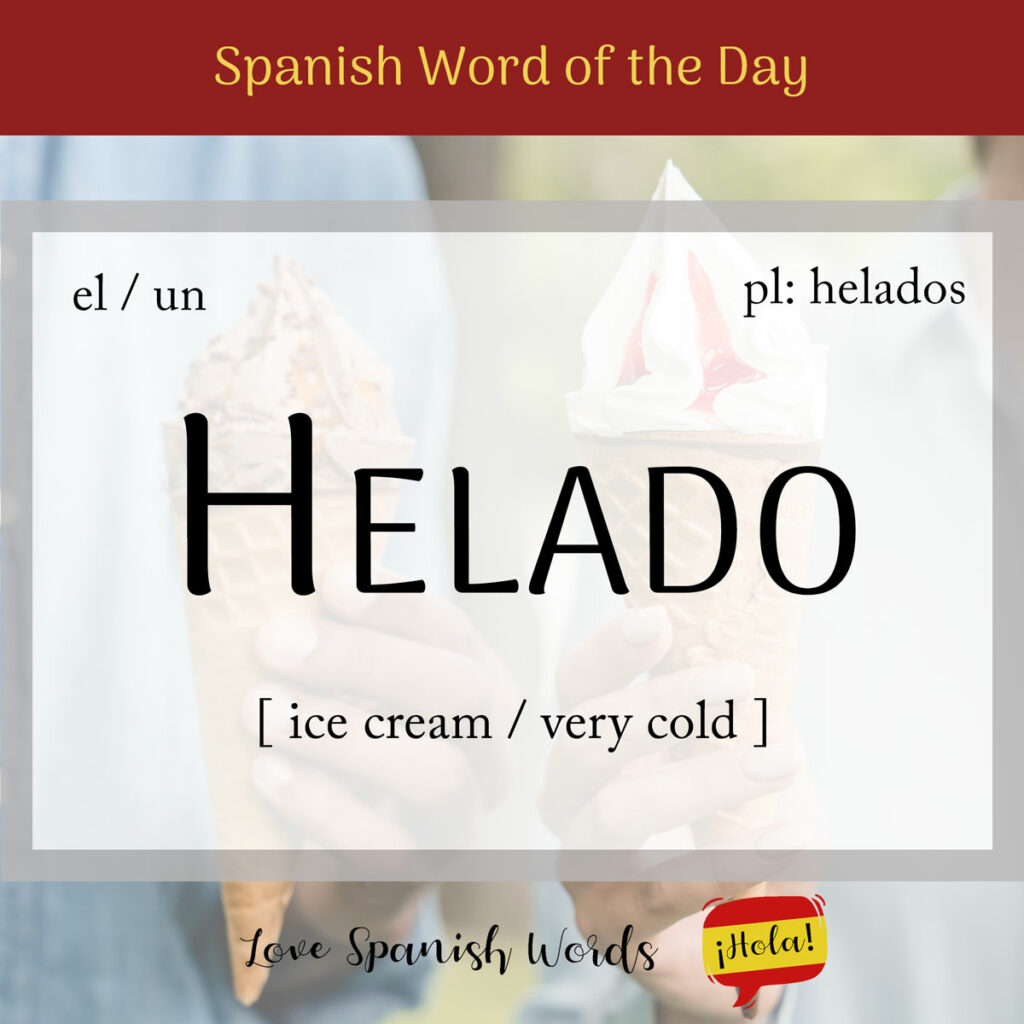Today we’re going to be investigating a Spanish word that is both a tasty noun and an ice-cold adjective: helado. Its origin can be traced back to the Latin gelātus, the perfect passive participle of gelō (meaning “to freeze”).
Latin American Pronunciation
European Pronunciation

Helado, as a noun, means ice cream. It is a cognate of the Italian gelato, a word with which most ice-cream loving English speakers should already be familiar! It takes the following definite and indefinite articles:
- el helado = the ice cream
- un helado = an ice cream
- los helados = the ice creams
- unos helados = some ice creams
A scoop of ice cream is known as una bola de helado in Spanish, while an ice cream sundae translates to una copa de helado.
¿Por qué el helado es tan adictivo?
Why is ice cream so addictive?

Helado is also an adjective that means “very / freezing cold.” Because it is an adjective, the ending changes depending on the gender and number of the subject. For example:
- el día helado = the freezing cold day
- los pies helados = the freezing cold feet
- la sopa helada = the freezing cold soup
- las manos heladas = the freezing cold hands

The difference between helado and its close synonym congelado is that the former means “very cold” (but not necessarily frozen) whereas the latter refers to something that is frozen solid.
Estamos comiendo helado, a pesar de que es un día helado.
We’re eating ice cream, even though it’s a freezing cold day.
What’s more, helado can describe something containing ice, such as té helado (iced tea) and café helado (iced coffee).

Used as an adjective, helado has two additional figurative meanings which are stunned / flabbergasted, and paralysed with fear.
Su comentario me dejó helada.
Her comment stunned me.
Cuando vi a la ladrona, me quedé helado.
When I saw the thief, I froze.

